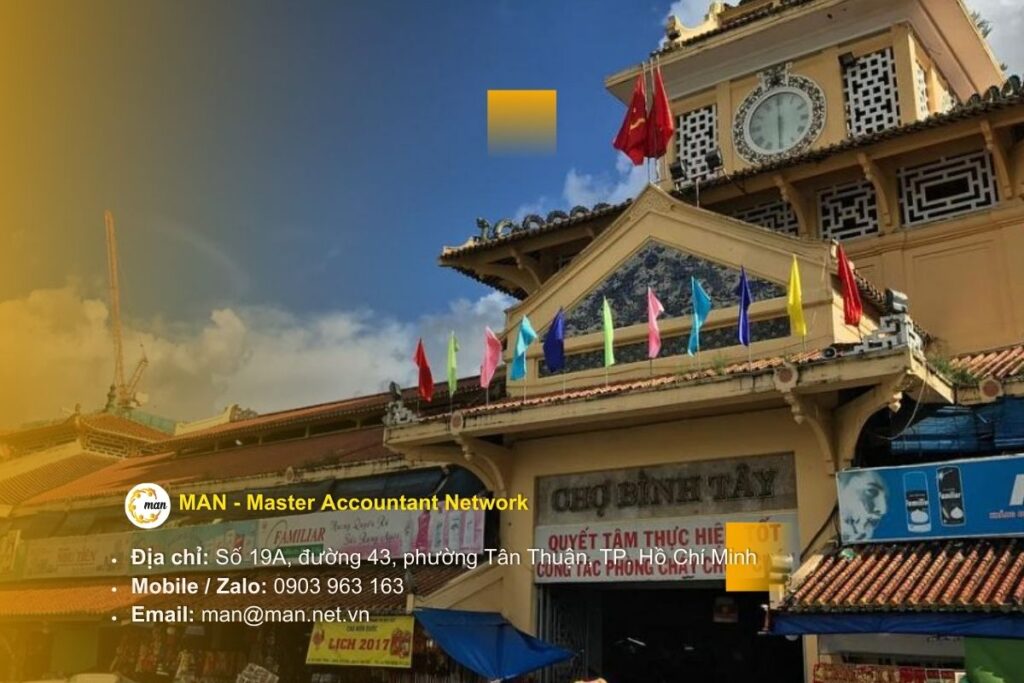The transfer pricing roadmap in Vietnam is currently regulated by Decree 132/2020/ND-CP and amended by Decree 20/2025/ND-CP. This is an important legal framework that helps businesses identify related relationships, declare on declaration support software (HTKK) and build pricing profiles according to the principle of independent transactions. Understanding this roadmap is not only a legal obligation but also an effective tax risk management solution.
Related transactions roadmap according to Decree 20/2025/ND-CP: Latest update
In the context of tax authorities strengthening the management of related party transactions, the recently issued Decree 20/2025/ND-CP has updated a series of important regulations that directly impact businesses subject to the application. Understanding the roadmap for related party transactions not only helps businesses proactively prepare documents and transaction valuation data, but also avoids the risk of tax arrears and administrative penalties. This article will analyze in detail the timelines, implementation steps and important notes under the new Decree.
Introduction and importance of affiliate marketing roadmap
What is the affiliate transaction roadmap in affiliate transaction management?
Transfer pricing management and transfer pricing roadmap are understood as the process and time when enterprises begin to fully implement their obligations regarding declaration, documentation and determination of transfer pricing according to new regulations. The transfer pricing roadmap includes: the time the document takes effect, the applicable tax periods, and transitional provisions for transactions or figures arising before the new document is issued.
According to Decree 20/2025/ND-CP (amending Decree 132/2020/ND-CP), the new regulations take effect from March 27, 2025 and apply to corporate income tax periods from 2024 onwards. This means that:
- Enterprises must prepare documents and data systems for related transactions from the 2024 accounting period, even though the time for submitting declarations is 2025.
- Expenses, especially interest expenses exceeding the control limit from previous years, will be handled according to the new transitional regulations.
- Enterprises need to review contracts, loan structures, affiliate relationships and transfer pricing documents to ensure they meet new standards when submitting declarations.
Decree 20/2025/ND-CP amend and clarify many criteria on related parties, supplement the scope of declaration (including independent accounting branches in some cases) and adjust the treatment of some loans and guarantees. In practice, it is important for businesses to understand that the regulation applies to transactions arising from the 2024 financial year, so preparation work must start early.
Detailed roadmap for related party transactions according to Decree 20/2025/ND-CP
Phase 1: Review and evaluate the current situation
Enterprises need to review all domestic and foreign transactions, comparing them with the new linkage criteria in Article 5 of Decree 132/2020/ND-CP (amended by Decree 20/2025/ND-CP). These criteria include: ownership ratio, control rights, loans, and management and capital contribution relationships.
Objective: Determine whether a business is required to declare and prepare a file of related party transactions.

Phase 2: Applying new regulations
From this date, some cases are excluded from affiliated relationships, for example: a bank loan, even if it exceeds 25% of equity and accounts for more than 50% of total medium- and long-term debt value, is not considered an affiliated transaction if the bank does not operate, control or contribute capital to the borrowing enterprise.
In addition, independent accounting branches must now also declare corporate income tax like independent enterprises if they participate in affiliated relationships.
Phase 3: Complete the application
Enterprises must prepare complete documents to determine transfer pricing including:
- Local file: Detailed information about the business's related party transactions in Vietnam.
- Master file (Corporate profile): General information of the multinational corporation (if any).
- Country-by-Country Report – CbCR: Report on profits, taxes and operations in each country (applicable to corporations with consolidated revenue of over VND 18,000 billion).
Phase 4: Archive and Prepare for Accountability
Tax authorities may request records within 15 working days of request. Businesses must retain records for at least 5 years and be prepared to explain when there is a tax audit or inspection.
See details at: Affiliate Trading Roadmap 2025
The application of regulations on related party transactions is not only a mandatory legal requirement but also a key factor for businesses to manage tax risks and comply with transparency. Decree 20/2025/ND-CP, issued on March 27, 2025, has adjusted and supplemented a number of contents compared to Decree 132/2020/ND-CP, including clear regulations on the roadmap for applying the obligations to declare, prepare documents and determine the price of related party transactions.
This means that from the time the Decree takes effect, all enterprises that have related-party transactions within the scope of regulation must clearly understand the implementation timeline and implementation sequence to avoid violations. Not understanding the related-party transaction roadmap can cause enterprises to fall into a state of late declaration, lack of documents, leading to tax arrears, high fines or even being considered for tax evasion.
Direct impact on tax obligations and financial performance
Applying the transfer pricing roadmap according to Decree 20/2025/ND-CP is not only a legal compliance requirement but also has an immediate impact on the amount of corporate taxes payable and how businesses manage cash flow.

Regarding tax obligations, new regulations on determining transfer pricing, controlling interest expenses, and requiring the preparation and maintenance of valuation records will determine the amount of deductible expenses when calculating corporate income tax. If a business fails to comply or makes incorrect declarations, the tax authority has the right to adjust taxable income, leading to an increase in the amount of tax payable, along with penalties and late payment fees.
Regarding financial activities, the new regulations require enterprises to review their capital structure, loan contracts, and related party purchase-sale price policies to ensure that they are consistent with their business strategies and do not exceed legal control thresholds. This directly impacts the ability to mobilize capital, allocate costs and profits, as well as annual financial reports.
The transfer pricing roadmap is the intersection between tax compliance and financial strategy. Businesses that handle it well will optimize their tax obligations and maintain financial health. On the contrary, if they are subjective, the risk of being charged back and losing cash flow balance is very high.
Risks if businesses ignore or delay preparation
Delay in preparing the transfer pricing documentation is not only an administrative shortcoming, but also has serious implications for both the tax liability and the financial stability of the business.

The risk of tax arrears and fines is clear. When tax authorities conduct an inspection, if they discover that a business does not have records or records are not properly prepared, they have the right to re-determine the transaction price and adjust taxable income.
This means that businesses may have to pay additional large amounts of tax along with late payment fees and administrative fines.
According to the law, the penalty for corporate income tax (CIT) arrears is prescribed in Article 126 of the Law on Tax Administration 2019 about the penalty as follows:
“In case the taxpayer commits tax evasion or tax fraud, he/she shall be fined 20% the amount of tax evaded.
In case the taxpayer pays tax late compared to the prescribed deadline, he/she will be fined for late payment of 0.03%/day calculated on the amount of tax paid late.
In case the taxpayer declares incorrectly leading to a shortage of tax payable, he/she will be fined 10% for the amount of tax owed.
In case the taxpayer does not pay tax or does not pay enough tax to the extent of being subject to collection, he/she shall be fined 10% the amount of tax underpaid.
In case the taxpayer makes an incorrect declaration leading to a shortage of tax payable but has paid the full amount of tax payable according to regulations, he/she shall be fined 0.05%/day calculated on the amount of tax shortfall but has been paid in full"
Source: Dan Viet Newspaper
Thus, understanding and properly implementing the transfer pricing roadmap according to Decree 20/2025/ND-CP not only helps businesses comply with the law but also ensures stability in financial operations and tax risk management. When all the preparation steps are ready, this is the time for businesses to review their strategies, strengthen their internal control systems and proactively respond to policy changes. From there, we can draw important conclusions and orient appropriate actions in the future.
With direct impacts on tax obligations and business reputation, understanding and properly implementing the related party transaction roadmap according to Decree 20/2025/ND-CP. This is the time for businesses to act, ensure compliance with the law, and optimize financial efficiency.
Conclude
In the context of increasingly strict legal environment and increased control by tax authorities, compliance isprocess affiliate transactions According to Decree 20/2025/ND-CP, it is a vital factor for all businesses. It not only helps to avoid legal risks, reduce the risk of tax arrears and penalties, but also contributes to enhancing reputation and creating trust with partners, investors and management agencies.
Enterprises need to consider this not only as a mandatory regulation, but also as an opportunity to review transaction structures, optimize financial strategies and internal management according to international standards. When fully preparing documents, data and monitoring processes, enterprises will always be proactive, ready to meet inspection, examination and sustainable development requirements..
For specific advice, businesses please contact MAN – Master Accoutant Network:
Contact information MAN – Master Accountant Network
- Address: No. 19A, Street 43, Tan Thuan Ward, Ho Chi Minh City.
- Mobile/zalo:+84 (0) 903 963 163 or +84 (0) 903 428 622
- Email: man@man.net.vn
Editorial Board: MAN – Master Accountant Network




